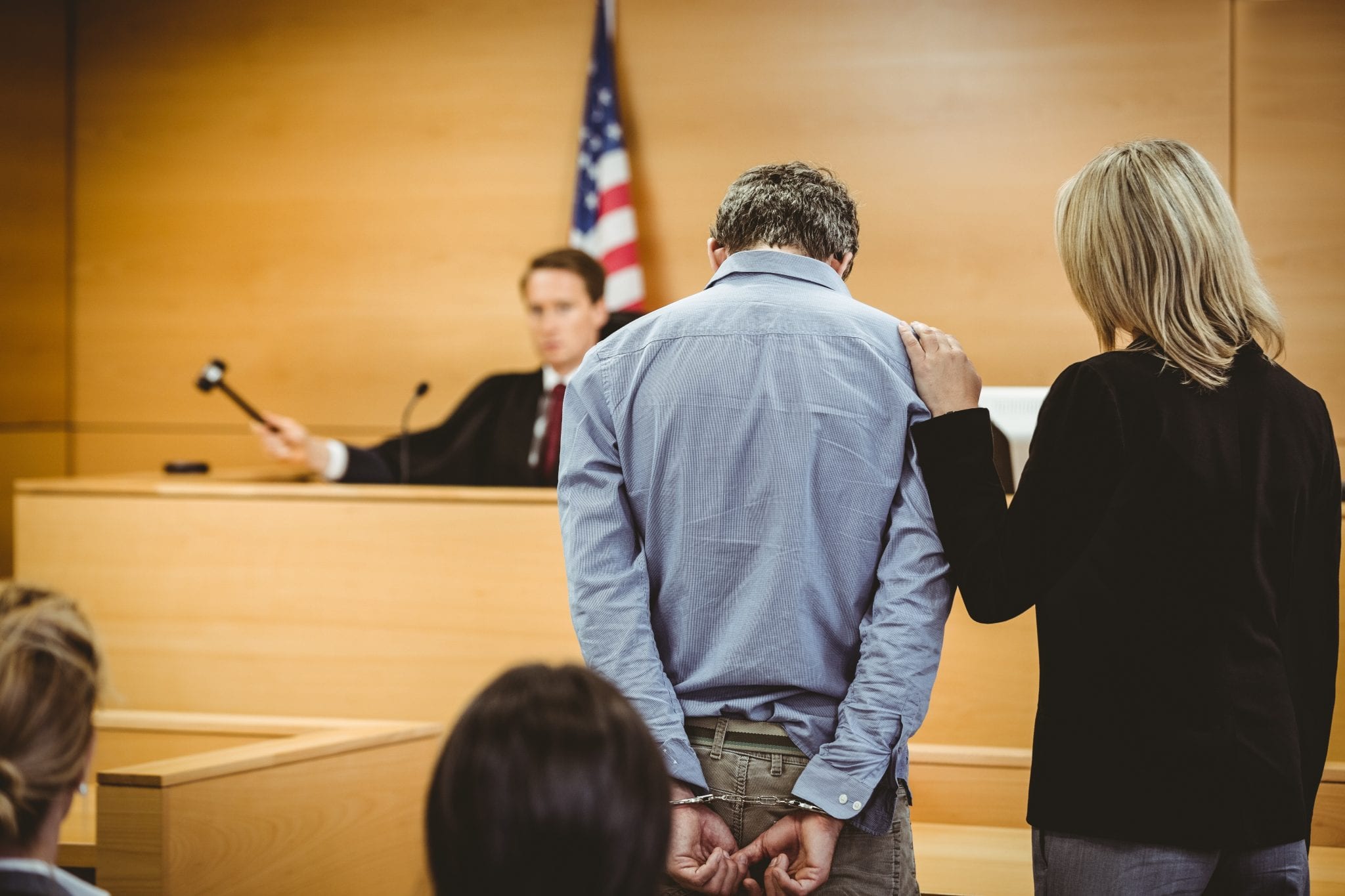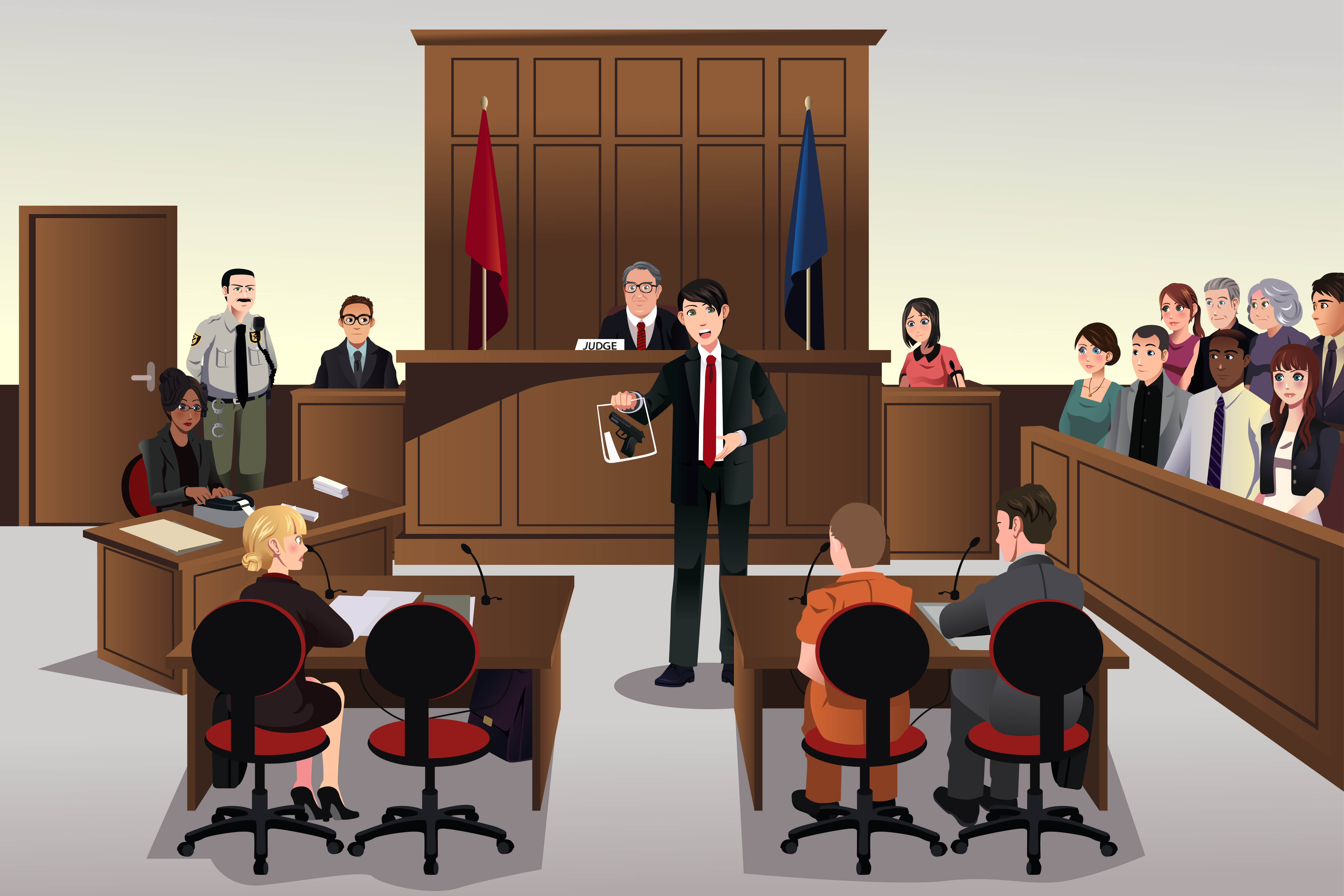
The Legal Battle Begins: A Closer Look at the Criminal Defendant’s Trial
Introduction:
When a criminal defendant faces trial, it marks the beginning of a legal battle that can have far-reaching consequences for their future. This pivotal moment in the criminal justice system is filled with complexities, procedures, and legal strategies that shape the course of the trial. In this article, we will delve into the various aspects of the criminal defendant’s trial, shedding light on the intricate details and shedding light on frequently asked questions.
Understanding the Criminal Defendant’s Trial:
1. The Pre-Trial Phase:
– An Overview:
The pre-trial phase is a crucial stage that sets the foundation for the trial. It involves various processes, such as arraignment, bail hearings, and discovery. During this phase, the defense and prosecution exchange information and evidence, allowing both sides to prepare their cases thoroughly.
– The Importance of Legal Representation:
The role of defense attorneys during the pre-trial phase cannot be overstated. They work tirelessly to ensure their clients’ rights are protected, scrutinize the evidence, and explore potential defense strategies. Their expertise in criminal law and procedure is essential for mounting a robust defense.
2. Jury Selection:
– A Critical Step:
Selecting an impartial jury is crucial for ensuring a fair trial. This process involves questioning potential jurors to identify any biases or prejudices that might hinder their ability to render an impartial verdict. The defense and prosecution play an active role in this process, aiming to select jurors who will be fair and open-minded.
– Voir Dire:
Voir dire is the legal term used to describe the questioning of potential jurors. Attorneys employ specific questioning techniques designed to reveal any biases or preconceptions that jurors may hold. By examining the jurors’ responses, attorneys can make informed decisions about whether they should be part of the jury.
3. Opening Statements:
– Setting the Stage:
Opening statements provide an opportunity for both the prosecution and defense to present their theories of the case to the jury. These statements aim to capture the jurors’ attention, introduce key arguments, and outline the evidence that will be presented during the trial. They serve as a roadmap for the upcoming proceedings.
– Crafting Persuasive Arguments:
Defense attorneys meticulously craft their opening statements, employing persuasive language and compelling narratives to challenge the prosecution’s case. They aim to cast doubt on the prosecution’s evidence, highlight their client’s innocence or mitigating circumstances, and establish a solid foundation for their defense strategy.
4. Presentation of Evidence:
– The Crucial Pieces:
The presentation of evidence is at the core of any trial. Both the prosecution and defense have the opportunity to introduce evidence that supports their respective arguments. This evidence can include witness testimonies, expert opinions, documents, physical objects, or digital evidence.
– The Burden of Proof:
In a criminal trial, the burden of proof rests with the prosecution. They must prove the defendant’s guilt beyond a reasonable doubt. Defense attorneys, on the other hand, aim to challenge the prosecution’s evidence, present alternative explanations, or cast doubt on the reliability of witnesses.
5. Cross-Examination:
– Uncovering the Truth:
Cross-examination is a crucial phase where the defense has the opportunity to question the prosecution’s witnesses. The defense aims to expose any inconsistencies, biases, or ulterior motives that may affect the credibility of the witness or weaken the prosecution’s case.
– Constructing Effective Questions:
Defense attorneys skillfully construct their questions to extract the desired information from the witness. Through strategic questioning techniques, they seek to elicit favorable responses or create doubt in the minds of the jurors. Cross-examination requires a deep understanding of the case and the ability to think on one’s feet.
6. Closing Arguments:
– Making a Lasting Impression:
Closing arguments offer the prosecution and defense a final opportunity to persuade the jury. Attorneys summarize the evidence, highlight key points, and reinforce their theories of the case. These arguments aim to leave a lasting impression on the jurors, shaping their final deliberations.
– Appealing to Reason and Emotion:
Defense attorneys craft their closing arguments to appeal to both reason and emotion. They may challenge the prosecution’s version of events, emphasize the lack of substantial evidence, and remind the jury of their duty to uphold the presumption of innocence. Effective closing arguments can sway the jury’s perceptions and influence their verdict.
Frequently Asked Questions (FAQs):
1. What happens if a defendant pleads guilty?
– If a defendant pleads guilty, it means they accept responsibility for the charges against them. This can lead to a shorter trial process and may result in a plea bargain, where the defendant agrees to a lesser charge or reduced sentence in exchange for their guilty plea.
2. What is the role of the judge in a criminal trial?
– The judge is responsible for ensuring that the trial proceeds fairly and according to the law. They make rulings on legal issues, ensure proper conduct in the courtroom, and provide guidance to the jury regarding the law and its application to the case.
3. Can a defendant change their defense strategy during the trial?
– Yes, a defendant can change their defense strategy during the trial if new evidence emerges or circumstances warrant a different approach. Defense attorneys constantly assess the progress of the trial and adapt their strategy accordingly to maximize their client’s chances of a favorable outcome.
4. What happens if the jury cannot reach a unanimous verdict?
– If the jury cannot reach a unanimous verdict, it results in a hung jury. In such cases, the judge may declare a mistrial, and the prosecution can choose either to drop the charges or proceed with a new trial with a different jury.
Conclusion:
The criminal defendant’s trial is a complex and intricate process that shapes the course of justice. From the pre-trial phase to jury selection, from opening statements to the presentation of evidence, every step holds significance in determining the outcome. Defense attorneys play a vital role in ensuring their clients’ rights are protected and constructing a robust defense. By understanding the nuances of the trial process, we can appreciate the intricacies of the legal battle that unfolds within the courtroom.

In the complex legal landscape of Los Angeles, navigating drug-related charges requires the expertise of a seasoned Los Angeles Drug Crimes Lawyer. When you need a skilled drug crimes lawyer in Los Angeles, these legal professionals offer a blend of experience and strategic prowess to defend your rights. From analyzing evidence to challenging legal procedures, they craft tailored defense strategies to mitigate the impact of drug charges on your life. With their adept representation, you gain a fighting chance in the courtroom, ensuring your voice is heard amidst legal complexities. Trust in a trusted drug crimes lawyer to safeguard your future.